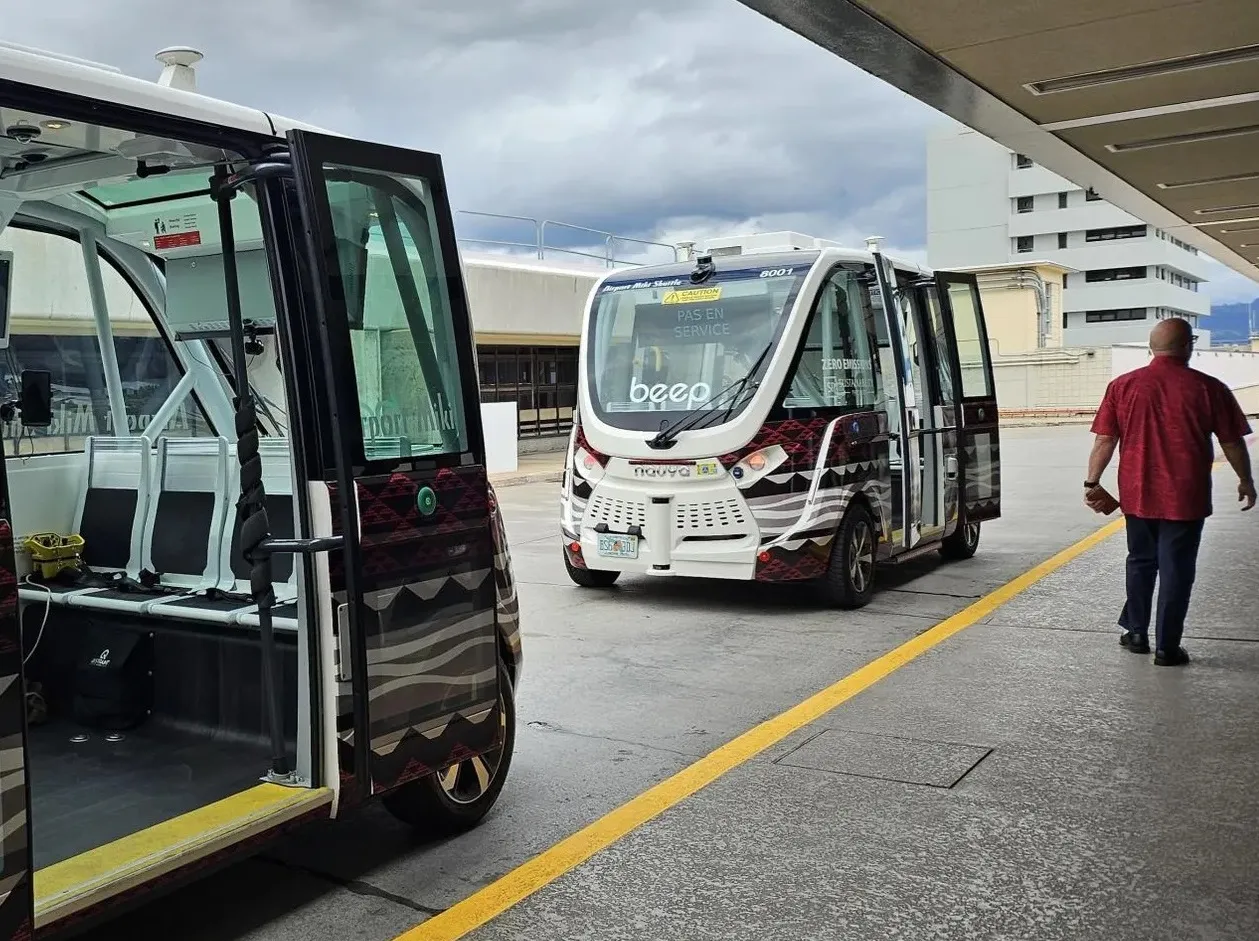
Autonomous and electric shared mobility specialist Beep is beginning shuttle pilots in two US states: Mississippi and Hawaiʻi.
Mississippi State University (MSU) campus will have the first autonomous shuttle route in the state on its campus, and there is also an 18-month autonomous shuttle pilot at the Daniel K. Inouye International Airport in Honolulu.
The MSU pilot programme will launch later this year, supplementing current transportation options on campus, while also providing transportation planning research for rural-urban environments.
“MSU is a recognised national and global leader in integrating cutting-edge technologies throughout their campus to enhance the everyday lives of their students and faculty,” said Beep’s chief revenue Officer Toby McGraw.
“Jeremiah Dumas, MSU’s executive director of transportation, and his staff truly understand the importance of being able to offer students, faculty and community members additional modes of transportation to safely travel between key points on campus."
Beep is working with Mississippi Department of Transportation and various safety administrations for approvals on the pilot, which will see two 11-passenger, attendant-led autonomous and electric shuttles operating on different routes between the campus, student housing and popular entertainment locations.
In Honolulu, Beep's Miki airport shuttle service is a partnership with Sustainability Partners and Hawaiʻi Department of Transportation (HDoT).
“Our fleet of turnkey shared and electric autonomous shuttles prioritises safety and sustainability while enhancing the airport travel experience for passengers," says Beep CEO Joe Moye. "This inaugural test programme showcases the emerging potential of advanced solutions that can augment existing transport options everywhere, unveiling a new era of seamless, efficient passenger mobility.”
The pilot includes four autonomous and electric shuttles that can transport 11 passengers including a shuttle attendant, providing first- and last-mile transport options alongside the existing Wiki Wiki shuttle bus service.
Shuttles will move between the airport’s C Gates with three stops for Miki’s short route, while a longer route will transport riders between C and G Gates with two stops. The service will be available seven days a week between 7:00am to 10:00pm, including holidays and weekends.
HDoT director Ed Sniffen says: “Beep and the Miki shuttles embody the future of transportation across the state, supporting our larger sustainability goals while enhancing the traveller experience.”
Sustainability Partners procures electric vehicles and charging infrastructure on a per-mile cost basis.
“The leadership displayed by the HDoT and Beep in launching the Miki shuttles for airport passengers strongly reflects their commitment to innovation and more environmentally sustainable transportation,” said Sustainability Partners CEO Thomas Cain.










